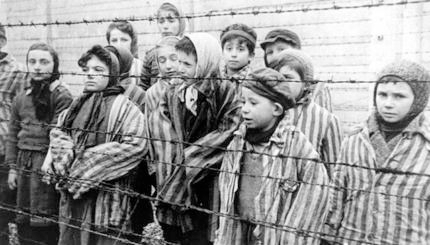Whenever I tell anyone that mother was in a German labor camp during World War II, they assume she was Jewish and in a concentration camp. I then explain that the Third Reich needed labor to produce war materiel and that millions of non-Jewish subjects of the counties they conquered were often forced into working in these camps. Although concentration camp inmates worked, the survival rate for labor camp workers was far greater. The Nazis work philosophy was that you either worked for the Reich or die.
My mother, a Catholic, was fifteen and living in Krakow when the Germans invaded in September of 1939. About two years later, she was put into a labor camp in Germany. She worked in a factory that made chewing tobacco. I thought this was an odd product for wartime; I associated chewing tobacco with hillbillies in the Appalachians and the Ozarks. But I discovered that soldiers (German or Allied) can’t smoke all the time in the field. A lit match at night or a wisp of smoke could give away a platoon’s position resulting in their destruction. The chewing tobacco satisfies the craving for nicotine.
One day when she was working, a civilian German supervisor came up to her and said he had a job for her. Because she was fluent in German, he could arrange for her to be a translator and housekeeper. This was an act of pure kindness on his part; there was nothing in it for him.
My mother would go to work for a contractor who tunneled out the Harz Mountains in Nordhausen where the Nazis built the V-2 rocket, the world’s first ballistic missile. Hidden deep under the mountains, the manufacturing facilities were protected from allied bombing. The tunnels had to be excavated and shored up from timber before they were lined with concrete. Inmates of all nationalities would go into the surrounding forests to cut the timber, while my mother acted as translator.
As a result of the German’s kindness, my mother lived in relative comfort with the contractor and his family while less than a kilometer away, mostly Jewish inmates perished while producing the rockets. It was these acts of kindness I wanted to include in my novel,
The Paris Architect
. Out of the goodness of their hearts, people step forward to help someone. My mother never saw the supervisor again but always knew how incredibly lucky she had been because of what this man did for her.
The Visiting Scribes series was produced by the Jewish Book Council‘s blog, The Prosen People.

